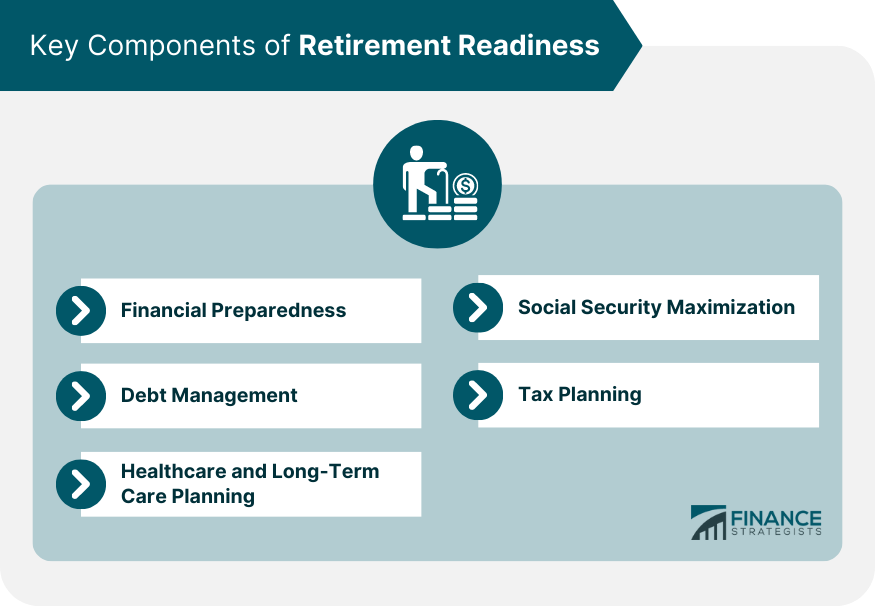
The journey towards a secure and fulfilling retirement is a significant life undertaking, often spanning decades. It’s a period that, for many, could encompass 20 to 30 years—a third or more of one’s entire life. This long horizon underscores the critical need for meticulous planning, allowing individuals to navigate the financial, health, and lifestyle considerations that arise as working years transition into leisure. Unfortunately, despite the best intentions, many individuals fall prey to common, yet costly, mistakes that can derail their retirement dreams.
Understanding these pitfalls isn’t about fostering fear; rather, it’s about empowering you with the knowledge to make informed decisions and take proactive steps. As a certified financial planner, my aim is to provide actionable tips that can help secure your financial future, ensuring your needs are met regardless of whether you plan to stay in your hometown or move to a new destination. About 80% of financial planning involves maximizing earnings, boosting savings, and budgeting now to achieve the life you envision later.
This comprehensive guide will illuminate 14 of the most prevalent retirement planning errors I observe, offering practical insights into how to sidestep them. By recognizing these common missteps early on and implementing strategic adjustments, you can set yourself on a trajectory for a healthy, financially secure, and genuinely happy retirement. Your future self will undoubtedly appreciate the diligence and attention you invest today.

1. **Putting Off Saving for Retirement**
This is perhaps the most fundamental and universally regretted mistake: simply not saving enough money, or delaying the start of your savings journey. A recent Northwestern Mutual study in 2025 revealed a stark reality: only one in four Americans with retirement savings report having one year or less of their current income saved. For Gen X’ers, many of whom are rapidly approaching retirement, a staggering 52% have saved three times or less their current annual income. The sheer volume of funds required for a comfortable retirement often remains an unknown for many.
The good news, according to Ajay Kaisth, a certified financial planner with KAI Advisors, is that even those who begin aggressively saving in their 40s or 50s may still have time to achieve their goals. However, this requires swift action and extreme discipline. The power of compounding interest, especially when initiated early, cannot be overstated. For instance, to build a $1 million nest egg by age 65, assuming an 8% annual interest rate, 2% inflation, and no prior savings, starting at 25 requires $300 a month; at 35, it jumps to $700; at 45, $1,700; and at 50, a substantial $3,000 monthly.
To counteract this, it’s crucial to put your retirement security on autopilot by saving regularly. This can be achieved through your employer’s retirement plan, like a 401(k), or through an Individual Retirement Account (IRA) with a trusted financial institution. A key actionable step is to contribute at least enough to receive any employer match offered in your savings plan, as this is essentially free money you don’t want to leave on the table. Calculating your required annual savings based on your current age and desired retirement date, perhaps with the aid of online calculators or a financial advisor, is an essential part of this process.
Read more about: Beyond the Capes: 12 Comic Book Movie Tropes That Are Seriously Struggling to Feel Fresh – And Why Audiences Are Saying ‘Seen It All’

2. **Downsizing Your 401(k) Contributions While Working**
Life throws curveballs, and sometimes unexpected financial pressures, such as unusually large tax bills or other household emergencies, tempt individuals to scale back on their retirement savings contributions. While understandable in the moment, financial experts like Meghan Murphy, a vice president at Fidelity Investments, caution against this path, emphasizing it’s an area where one must tread lightly. The immediate relief often comes at a significant long-term cost to your retirement security.
The primary concern when reducing contributions is missing out on employer matching funds. As Murphy highlights, “make sure you choose very carefully and ensure you’re taking advantage of any 401(k) employer match that you might be eligible for, and, save at least enough to get that match.” This employer match is “free money” that is forfeited when contributions fall below the threshold. Sacrificing these contributions means not only losing immediate funds but also the potential investment growth those matched dollars would have generated over time.
To mitigate this risk, many retirement plans offer a valuable feature: the option to automatically increase your savings rate at some point in the future. Murphy advises, “Check that box that you increase at some point in the future.” This simple act can help ensure you get back on track with your retirement savings, gradually ramping up your contributions once your financial situation stabilizes. It acts as a proactive commitment, preventing temporary setbacks from becoming permanent detriments to your nest egg.
Read more about: Ready to Master Your Money? We’ve Got The Ultimate List of Budgeting Hacks & How-Tos!

3. **Avoiding the Stock Market**
A pervasive fear among many investors, especially those nearing retirement, is the perceived risk of the stock market. The volatility and fluctuations can deter individuals from investing, leading them to keep their savings in seemingly safer, but ultimately less rewarding, vehicles like bonds, CDs, bank accounts, or even cash. While these options offer stability, they consistently fall short of the growth potential needed to sustain a retirement that could span decades.
Elizabeth Muldowney, a financial adviser with Savant Capital Management, succinctly captures this dilemma: “Conventional wisdom may indicate the stock market is ‘risky’ and therefore should be avoided if your goal is to keep your money safe.” However, she quickly clarifies, “However, this comes at the expense of low returns and, in fact, you have not eliminated your risk by avoiding the stock market, but rather shifted your risk to the possibility of your money not keeping up with inflation.” Since 1926, stocks have historically delivered an average return of about 10% a year, a performance unmatched by other conservative options.
Even once you reach retirement age, completely retiring your stock portfolio is another significant mistake, according to Meghan Murphy of Fidelity Investments. Your nest egg needs to continue growing to finance a retirement that might last 30 years or more, outstripping the corrosive effects of inflation. While it’s prudent to gradually reduce your exposure to stocks as you age to ratchet down risk, a complete divestment can jeopardize your long-term financial stability. Low-cost mutual funds and exchange-traded funds (ETFs) offer an affordable and diversified way to remain invested in the market without the complexities of buying individual stocks. For those using target date funds, it’s vital to understand the fund’s equity exposure and ensure it aligns with your evolving retirement timeline, checking in on it at least annually.
Read more about: Navigating the Waters: Your Expert Guide to Choosing the Best 2025 Car for Towing a Boat

4. **Claiming Social Security Too Early**
The allure of starting retirement benefits at age 62 is understandable, offering an earlier sense of financial freedom. However, for most individuals, this early claim represents a costly long-term mistake that significantly reduces lifetime benefits. Financial planners widely recommend deferring Social Security claims, ideally until your full retirement age (FRA), which is 67 for anyone born after 1959, or even pushing it to age 70 if your financial situation permits.
The financial implications of claiming early are substantial. If your full retirement age is 67, claiming at 62 will result in a permanent 30% reduction in your monthly check. Conversely, delaying your claim provides a powerful incentive: an 8% boost in benefits each year between ages 67 and 70, thanks to delayed retirement credits. This is a guaranteed return that is difficult to find elsewhere in the market, as Natalie Colley, a financial analyst at Francis Financial, points out: “Where else will you get guaranteed returns of 8% from the market?”
For couples, widows, and divorced spouses, claiming strategies can be intricate and may differ. It is always wise to weigh your specific options carefully and consult with a professional if you need personalized guidance. If possible, consider living off your investment portfolio for a few years to delay claiming, or explore options like staying on the job longer, if feasible, or starting a side gig to help bridge any financial gaps. These strategies can help maximize your Social Security income, a crucial component of many retirement plans.
Read more about: From Paparazzi to Privacy: How Celebrities and Influencers Are Masterfully Reclaiming Their Lives Offstage in the Digital Age

5. **Borrowing From Your 401(k)**
The temptation to tap into your 401(k) retirement savings account, viewing it as a personal piggy bank, can be incredibly strong, especially during times of financial strain. After all, it is your money, and many plan sponsors permit borrowing, typically allowing five years for repayment with interest. However, financial experts almost universally agree that, outside of a dire emergency, taking a loan from your 401(k) is one of the worst mistakes you can make for your retirement security.
Meghan Murphy of Fidelity Investments highlights several critical downsides. Crucially, individuals are “likely to reduce or suspend new contributions during the period you’re repaying the loan.” This means you’re not only short-changing your retirement account for months or even years but also sacrificing invaluable employer matches—which are essentially free money. Furthermore, you’re missing out on the significant investment growth that those missed contributions and the borrowed cash would have otherwise generated, severely hindering your nest egg’s long-term potential.
Before resorting to a 401(k) loan, it’s essential to explore all other available avenues. Murphy suggests considering whether an emergency fund is available, or if medical emergencies could be covered by a health savings account (HSA). Increasingly popular, she notes, is drawing money from stock plan options through an employer, which often avoids penalties or direct paycheck repayment requirements. Remember, if you leave your employer before a 401(k) loan is fully repaid, you typically have a very short window (60 to 90 days, or even as little as 30 days) to pay it back, or it becomes a taxable distribution, potentially incurring a 10% tax penalty if you’re under 59-1/2. Additionally, you’ll pay interest on the loan with after-tax dollars, only to be taxed on those funds again in retirement.
Read more about: Are You Making These Costly Retirement Blunders? 11 Common Mistakes That Annoy Advisors and Spouses Alike
6. **Falling for Too-Good-To-Be-True Offers**
The promise of shortcuts to a secure retirement is a dangerous illusion, often leading to devastating financial losses. Hard work, careful planning, and decades of wealth-building are the true foundations of a stable retirement. Yet, every year, Americans lose hundreds of millions of dollars to “get-rich-quick” schemes and other scams, with elder fraud running rampant, according to the FTC. These predatory offers prey on the vulnerability and trust of retirees and pre-retirees, eroding hard-earned savings.
The scale of this issue is alarming. Identity theft, particularly credit card fraud, is a common threat, with 365,758 cases reported in the first quarter of 2025 alone, a significant jump from the previous quarter. It’s projected to reach $43 billion by 2026. Moreover, every 14 seconds someone in the U.S. falls victim to identity theft, and 150 million Americans are expected to be victims of credit card fraud this year. Scammers are relentless, constantly trying to trick individuals into parting with their retirement dollars, often through sophisticated and convincing means, including phone calls for fake donations to police.
Spotting these too-good-to-be-true offers requires vigilance. Tell-tale signs include guarantees of spectacular profits in a short timeframe without risk, requests to wire money or pay a fee before receiving a prize, or unnecessary demands for sensitive financial information such as bank account, credit card, or Social Security numbers. Crucially, be wary—and in fact, run away—from anyone pressuring you for an immediate decision or discouraging you from seeking advice from an impartial third party. If you suspect a scam, the FTC advises searching the company or product name alongside terms like “review,” “complaint,” or “scam” on search engines, and filing complaints with both your local consumer protection office, your state attorney general, and the FTC.
Read more about: Are You Making These Costly Retirement Blunders? 11 Common Mistakes That Annoy Advisors and Spouses Alike

7. **Putting Your Kids First (financially)**
It’s a natural parental instinct to want the absolute best for your children—the finest education, a memorable wedding, and every advantage life can offer. And if your financial situation genuinely allows for such generosity without compromising your future, then by all means, open your wallet. However, a significant and often costly mistake in retirement planning is footing the bill for private tuition, lavish nuptials, or substantial down payments for children at the expense of your own retirement savings. This can create a boomerang effect, where your financial sacrifice today leads to hardship for you tomorrow.
Financial experts consistently warn against borrowing from your retirement fund to support adult children. Instead, it’s imperative to explore alternative funding avenues for a child’s education or other significant expenses that do not involve raiding your own nest egg. Parents and students alike should investigate 529 plans, scholarships, grants, student loans, and more affordable in-state schools. Even considering community college for two years before transferring to a four-year institution can significantly reduce costs, provided credits are transferable. Sensible strategies also exist for saving on wedding expenses, ensuring your children’s big day doesn’t bankrupt your golden years.
The stark reality is that if you are not financially prudent now, you could find yourself in a precarious position during retirement, potentially becoming dependent on your children. “No one plans to go broke in retirement, but it can happen for many reasons,” the context warns. “One of the biggest reasons, of course, is not saving enough to begin with. If you’re not prudent now, you might end up being the one moving into your kid’s basement later.” Prioritizing your own financial security is not selfish; it’s a responsible act that ultimately benefits the entire family by preventing future burdens.
The initial steps in retirement planning, as we’ve discussed, lay the crucial groundwork for your financial future. Yet, securing a fulfilling retirement goes far beyond just accumulating funds. It encompasses a careful consideration of your lifestyle choices, the nuanced management of your assets, and proactive steps to ensure your long-term well-being. As you transition into this new chapter, navigating these complexities wisely can make all the difference between a golden age of contentment and one riddled with unforeseen challenges. Let’s dive into more common mistakes that people make, focusing on how to craft a truly resilient and enjoyable retirement experience.

8. **Relocating on a Whim**
The siren call of warmer climates or a slower pace of life has long drawn many individuals as they approach retirement. Imagining endless rounds of golf, leisurely walks on sun-drenched beaches, or simply a change of scenery can be incredibly appealing. It’s easy to cook up a plan to retire in Florida, Arizona, or perhaps one of the charming coastal towns. However, the allure can sometimes mask a harsher reality, transforming what seemed like a dream destination into an unexpected nightmare.
Many folks, in their excitement, have trudged off willy-nilly to what they thought was their ideal spot, only to discover that the pace of life is too slow, everyone is a stranger, and even seemingly idyllic activities like golf or beach strolls can quickly grow tiresome. The reality of daily life in a new environment, far from family and established social circles, can be a profound shock. The emotional and financial toll of a hasty, ill-suited move can significantly detract from your retirement happiness.
To sidestep this common and costly error, it’s crucial to thoroughly test the waters before making any permanent moves. Well before your official retirement date, spend extended vacation time—perhaps several weeks or even a few months—in your chosen destination. This allows you to get an authentic feel for the local people, the community vibe, and the overall lifestyle, giving you a much clearer picture than a short visit ever could. This advice is especially pertinent if you’re considering retiring abroad, where new languages, unfamiliar laws, and different cultural customs can be incredibly overwhelming for even the hardiest of retirees.
Beyond just experiencing the lifestyle, undertake diligent research into practical considerations. Explore resources such as articles detailing what you should know before retiring in popular destinations like Florida, Arizona, or the Carolinas, and be aware of any longer-term challenges that might impact your finances. Furthermore, before committing to buying a new home, particularly in coastal or flood-prone areas, ensure you fully understand the risks of flooding in a storm and the potentially high costs of flood insurance, if it’s offered at all. Once you decide to make the plunge, a smart strategy is to rent for a year or more before making a purchase. As an example, a couple I know circled Savannah, Georgia, as their permanent retirement nest, but wisely chose to lease an apartment downtown for a year first. It turned out the Deep South’s slower pace didn’t suit their Philadelphia “get-it-done-now” temperament, leading them to become “halfback retirees”—moving halfway back north after an initial move south.
Read more about: Are You Making These Costly Retirement Blunders? 11 Common Mistakes That Annoy Advisors and Spouses Alike

9. **Planning to Work Indefinitely**
Many baby boomers harbor every intention of staying on the job beyond the traditional retirement age of 65. Whether driven by a desire to remain active, a financial necessity, or a strategic plan to maximize their Social Security checks, the idea of an endless working life can seem like a viable retirement strategy. Fidelity’s 2025 State of Retirement Planning survey even revealed that more than half of all workers plan to continue working part-time indefinitely into retirement, with a growing trend of older workers slowly phasing into retirement through reduced hours or more flexible arrangements.
However, relying on this plan without a backup can seriously backfire. While it’s wonderful to be able to work as long as you wish, various unforeseen circumstances can force an earlier, unplanned retirement. Health-related issues, whether your own or those of a loved one requiring care, are a major factor. Additionally, employer-related issues such such as company downsizing, unexpected layoffs, or voluntary buyouts can abruptly end a career, leaving individuals unprepared for the sudden cessation of income. Moreover, failing to keep skills current in a rapidly evolving job market is another significant reason why older workers often struggle to remain employed or find new positions.
The actionable advice here is to assume the worst-case scenario and save early and often, irrespective of your intentions to work longer. Do not depend on the ability to work indefinitely as a core component of your retirement income strategy. According to the most recent Transamerica survey (2025), almost four in 10 workers expect to retire at age 70 or later, while 23% do not plan to retire at all, often citing financial or healthy-aging reasons. While these aspirations are admirable, prudence dictates building a robust nest egg that can support you even if your working years are cut shorter than anticipated.
Read more about: Are You Making These Costly Retirement Blunders? 11 Common Mistakes That Annoy Advisors and Spouses Alike

10. **Decluttering to the Extreme**
As individuals progress into their later years, particularly their late 80s and early 90s, a natural instinct often kicks in: the desire to declutter and simplify. My own parents, for instance, who have resided in the same home for decades, have in recent years embarked on a mission to get rid of a substantial amount of the “stuff” they’ve accumulated. Their commendable goal is to ease the burden on my brother and me down the road when we eventually inherit their home, a considerate gesture that many retirees share.
While much of what gets discarded might genuinely be unwanted or unused, it’s important to recognize that not everything constitutes “junk”—and some items hold more than just sentimental value. My father, for example, wisely consulted his lawyer before parting with the bookkeeping records from the business he owned for many years. He received clearance, but his caution serves as a fair warning to us all: exercise extreme care about what you throw out in haste, as certain documents and records carry significant legal and financial weight.
Specifically, certain professionals, including doctors, dentists, lawyers, and accountants, can be legally mandated to retain specific records for many years, even decades, after they’ve retired. This requirement is in place to protect both themselves and their former clients. Regarding tax records, the IRS typically has three years to initiate an audit. However, it’s a best practice to hold onto certain critical records indefinitely. This includes your actual tax returns, along with documents related to the purchase and capital improvement of your home, purchases of stocks and funds in taxable investment accounts, and detailed contributions to retirement accounts—especially non-deductible IRA contributions reported on IRS Form 8606. These documents are vital for accurately determining the correct tax basis on assets, which can prevent you from inadvertently paying more in taxes than you actually owe. And who knows, some seemingly old things in your home might even be worth a fortune to collectors or appraisers.
Read more about: Are You Making These Costly Retirement Blunders? 11 Common Mistakes That Annoy Advisors and Spouses Alike

11. **Buying into a Timeshare**
For many retirees, the appeal of a timeshare during their golden years is immediately apparent. With the freedom from the daily 9-to-5 grind, the thought of more frequently visiting a favorite vacation spot or easily swapping for slots at other alluring destinations within a vast timeshare network seems like an unbeatable deal. It promises hassle-free holidays, a sense of luxury, and the convenience of a recurring getaway without the full financial commitment of a second home. Yet, this often-seductive proposition is not always the great deal it appears to be, and many buyers who don’t fully grasp its financial implications often come to deeply regret their purchase.
Beyond the substantial thousands typically paid upfront for a timeshare, owners face a continuous stream of escalating maintenance fees, which can accumulate to a surprisingly high annual sum. These fees often cover property upkeep, taxes, and management, but they can increase over time, adding a significant and often unpredictable burden to your budget. Furthermore, vacationing in timeshare hotspots like Hawaii, Mexico, or the Bahamas still incurs high travel costs for flights, meals, and activities, effectively eroding the perceived savings. Should you develop buyer’s remorse, attempting to offload a timeshare can be notoriously difficult. The secondary real estate market is often flush with used timeshares, making it challenging to secure the price you desire—or even to sell it at all. The entire timeshare resale market is unfortunately rife with scammers preying on those desperate to exit their contracts.
If you find yourself with a timeshare you no longer want, it’s essential to approach the situation strategically and cautiously. Experts advise that your first step should always be to contact your timeshare management company directly to inquire about any official resale options or buy-back programs they might offer. If that avenue proves fruitless, consider listing your timeshare for sale or rent on established and reputable online platforms specifically dedicated to timeshare resales, such as RedWeek.com and Tug2.net. These platforms provide a more legitimate marketplace compared to less regulated sites. Alternatively, if you prefer professional assistance, hire a reputable broker who specializes in timeshare resales. The Licensed Timeshare Resale Brokers Association offers an online directory of its verified members, which can be a valuable resource in finding a trustworthy professional.
As a last resort, if all other options fail, you might explore the possibility of donating your timeshare to a charity for a potential tax write-off. However, this path comes with its own set of complexities and requirements; not all charities accept timeshares, and the tax benefits can vary. Therefore, before pursuing this option, it is absolutely crucial to consult with your tax adviser to understand the full implications and ensure you meet all necessary criteria for any charitable deduction.
Read more about: Are You Making These Costly Retirement Blunders? 11 Common Mistakes That Annoy Advisors and Spouses Alike

12. **Ignoring Long-Term Care**
It’s a natural human inclination to believe we’ll remain healthy and in good physical and mental shape throughout our retirement years. We diligently maintain a good diet, engage in plenty of exercise, and schedule regular medical check-ups, all in the hope of warding off illness and maintaining our independence. Yet, the stark reality is that even the hardiest and most health-conscious retirees can eventually fall ill. Beyond specific ailments, the inevitable passage of time will take its toll on both mind and body as individuals progress through their 70s, 80s, and 90s, making the need for assistance a very real possibility.
When the day arrives that you or a beloved family member requires long-term care—whether for assistance with daily activities or more intensive medical support—many are unprepared for the substantial financial burden, often described as “sticker shock.” A Place For Mom breaks down the 2025 costs for various levels of care, revealing staggering figures: Assisted living averages $5,190 per month, memory care reaches $6,200 per month, independent living is around $3,145 per month, and in-home care costs $30 per hour for just 20 hours per week. These expenses are so considerable that even a sizable retirement nest egg can be rapidly depleted, leaving families in financial distress. It’s also a crucial point to remember that Medicare, the federal health insurance program for seniors, typically does not cover most of the costs associated with long-term care, which primarily includes custodial care rather than medical care.
Fortunately, there are options available for funding long-term care, although they, too, can be pricey and require foresight. One common approach is long-term care insurance. If you can afford the high premiums, this type of policy can cover some, but not necessarily all, nursing home costs. According to the American Association for Long-Term Care Insurance, in 2024 (the most recent data available), a policy offering $165,000 of total lifetime coverage for a 65-year-old single male would cost an average annual premium of $1,700—a significant increase from $900 in 2023. The same policy for a couple would be $2,080 annually, demonstrating the considerable investment required.
Another valuable option to consider is purchasing a qualified longevity annuity contract, often referred to as a QLAC. This financial instrument involves investing a hefty lump sum upfront when you are younger. In exchange for this initial investment, the QLAC guarantees a steady stream of income for the remainder of your life once you reach a predetermined advanced age, typically 85. This strategy provides a hedge against outliving your other retirement assets and helps cover potential late-life care expenses, offering a measure of financial security in your very senior years. Proactive planning for long-term care is an essential, though often overlooked, component of a comprehensive retirement strategy.
Read more about: Navigating the Waters: Your Expert Guide to Choosing the Best 2025 Car for Towing a Boat

13. **Neglecting Estate Planning**
Many people mistakenly believe that estate planning is an exclusive concern for the ultra-wealthy, something far removed from the everyday financial realities of most retirees. However, this couldn’t be further from the truth. Even if your assets are modest—perhaps encompassing just a car, your family home, and a bank account—having a valid will is absolutely essential. A will allows you to clearly specify who receives what from your possessions and, critically, names an executor who will be responsible for disbursing your money and assets according to your wishes. Dying without a will, known as dying intestate, means your estate becomes subject to your state’s probate laws. This process can be lengthy and costly, tying up your assets in court for an extended period, potentially creating significant financial hardship for your heirs. Worse yet, absent a clear will, a judge might ultimately award your assets to an unintended party, such as an estranged spouse or a relative you never liked or intended to benefit.
Retirement marks an ideal and often crucial time to review any existing estate planning documents you may have, or to finally create those you’ve long ignored. Perhaps you had a will drawn up years ago when your children were young and your financial situation was vastly different. Decades later, what has changed? Are you divorced or remarried? Has your financial standing improved or declined significantly? Your preferences for who inherits your wealth may also have evolved; perhaps you now wish for your grandchildren or a favorite charity to receive what you originally earmarked for your now-grown children. It’s imperative to ensure your documents reflect your current wishes and life circumstances.
Beyond a basic will, comprehensive estate planning involves several other critical components. Remember that some assets, such as retirement accounts (like 401(k)s and IRAs) and life insurance policies, typically fall outside the purview of your will because they have designated beneficiaries. It is paramount to regularly check and ensure that the beneficiaries you have on file with financial institutions are current and accurately reflect your intentions. Outdated beneficiary designations can lead to assets going to unintended individuals, overriding your will. Furthermore, you should draft a durable power of attorney, which names a trusted individual to manage your financial affairs if you ever become incapacitated or need assistance.
As you get older, your healthcare wishes also come into much sharper focus. Therefore, advance directives are essential. This includes a living will, which clearly spells out the medical treatments you do and do not want if you become seriously ill or are unable to communicate your decisions. Equally important is a power of attorney for healthcare, which designates someone you trust to make medical decisions on your behalf if you are unable to make them yourself. Whether your budget is tight and you need to save money on estate planning or you are a millionaire with complex assets, the bottom line is that you should at least get started on these crucial preparations today to protect your legacy and ensure your wishes are honored.
Read more about: 2025 Self-Parking Systems: An In-Depth Consumer Reports Analysis of Real-World Safety and Reliability

14. **Failing to Plan How You’ll Fill Your Free Time**
Our working careers, for better or worse, provide a significant structure to our lives, typically occupying five days a week with a clear routine and purpose. Weekends often become consumed by household chores, errands, social engagements, and much-needed rest, only for the cycle to begin anew on Monday morning. But once you leave your job for good, whether through a phased retirement or an abrupt cessation of work, there is suddenly a tremendous amount of free time to fill. This profound shift can be disorienting, and many retirees find themselves asking, “What now?” Have you truly thought through how you will actively avoid boredom and maintain a sense of purpose and engagement in retirement?
The story of a friend of mine illustrates this point perfectly. He had a rewarding government job that came with the perk of early retirement in his fifties, which he eagerly embraced. However, not long after stepping away from full-time work, he informed me he was returning to his old position, albeit for just two days a week. His reason was insightful: “There’s only so many movies to see alone during the day in an empty theater,” he confessed. “That got old fast.” His experience underscores a critical, yet often overlooked, aspect of retirement planning: it’s just as vital to plan your free time in retirement as thoroughly as you plan your finances.
Thinking creatively about how you’ll spend your newfound freedom can lead to a more fulfilling retirement. Perhaps a part-time job doing something you genuinely love, rather than just tolerating, is the answer. For me, a particularly happy period was working at a theme park between high school and college—an environment where everyone seemed joyful. I’ve always kept the idea of a “theme park job in retirement” in my back pocket. You could also take a casual hobby that you’ve always enjoyed and elevate it to new levels, now that you have the dedicated time to devote to it. This could mean becoming more involved in a community organization, mastering a musical instrument, or delving deeper into a craft.
Many other avenues exist for purposeful engagement. You might ease into retirement by taking on a freelance gig, such as driving for Uber, pet sitting, leveraging your professional talents as a remote consultant or tutor, or even selling your unique crafts and art on platforms like Etsy. The array of part-time and seasonal jobs for retirees is surprisingly broad, not to mention a vast landscape of potential side hustles that can provide both income and intellectual stimulation. For those with a thirst for knowledge, returning to school is another fantastic option. Many public colleges and universities—and even some private ones—offer free or significantly cheap college courses for retirees. It’s worth checking a school’s website for specific details or contacting the registrar’s office to explore these educational opportunities. For even more inspiration on structuring a joyful retirement, exploring habits that foster a happy retirement can provide valuable insights into designing a life rich with meaning and satisfaction.
Read more about: Customizers Be Wary: 14 Types of Paint Jobs You Should Seriously Think Twice About Choosing for Your Ride
Navigating the path to a truly fulfilling retirement demands more than just financial foresight; it requires a holistic approach that embraces lifestyle, health, and purpose. By proactively addressing these common pitfalls, from planning your living situation and potential work to securing your long-term health and filling your days with meaningful engagement, you are not merely avoiding mistakes—you are actively designing a future rich in security, happiness, and peace of mind. Your diligent planning today is the greatest gift you can give your future self, ensuring that your golden years are truly golden.





